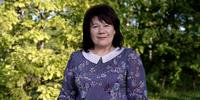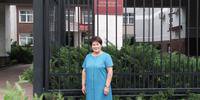The Case of Piskareva in Oryol
Filter
- #
In Orel, searches are being carried out at 8 addresses, among the victims are the spouses Vladimir and Tatyana Piskaryov. Vladimir was placed under arrest on the same day. A day earlier, a criminal case was opened against him under an extremist article.
- #
The investigator of the investigation department for the Sovetsky district of the city of Orel of the Investigative Directorate of the Investigative Committee of the Russian Federation I. Simonova singles out the criminal case against Tatyana Piskareva in a separate proceeding.
According to the investigation, the believer "took part in the meetings of a banned religious organization." This is how Simonova interprets the peaceful communication of believers at worship services held via video conferencing.
- #
Investigator of the Investigative Committee of the Russian Federation Anastasia Dunicheva attracts Tatyana Piskareva as an accused. Among the evidence of her guilt, the investigation lists recordings of telephone conversations and conversations with fellow believers via the Internet.
- #
The case goes to the Sovetsky District Court of Orel. It will be considered by judge Dmitry Sukhov.
- #
The hearing of the case in court begins. Tatyana submits a petition for audio recording of the hearings, the judge allows. The defendant pleaded not guilty. She reads out her attitude to the charges, the judge attaches it to the case file.
- #
Interrogation of four prosecution witnesses. Three of them do not know the defendant. Nothing can be explained on the merits of the case.
- #
Due to the failure of prosecution witnesses to appear, the judge proposes to change the course of the hearing. The prosecutor skims 5 volumes of the case file.
- #
The lawyer petitions for the face-to-face interrogation of the secret witness Ivanova, the judge refuses. The prosecutor begins the questioning of the witness Ivanova. She reports that she finds nothing reprehensible in the religion of Jehovah's Witnesses. The witness confirms that she was never forced to become a member of any religious organization. Answering the prosecutor's questions, Ivanova reports that several people came to the service to one of the believers, among whom were the Piskarevs.
- #
CDs with audio recordings of conversations between Tatyana Piskareva and another believer on biblical topics, which were made secretly, are being examined.
- #
The court listened to recordings of Piskaryova's telephone conversations. Those present hear how a woman communicates with her acquaintances in a friendly manner and encourages them to follow the instructions of the authorities - to observe the regime of self-isolation during the covid period. On the recording, she says: "We need to obey the authorities more. They said not to go out means not to go out!"
Judge Dmitry Sukhov reports on a letter received by the court from Germany from acquaintances of Tatyana Piskaryova, who ask not to punish the believer. The lawyer asks to attach the letter to the case file, as it positively characterizes the accused. The judge grants the request.
- #
Tatyana Piskareva talks about her peaceful nature: "I did not call anyone against the authorities. I have never carried out actions to discriminate against anyone, did not incite hostility or violence. On the contrary, my life principles are peace, love, patience, empathy, kindness. He points out that the state prosecution has no evidence of her guilt and notes that 11 prosecution witnesses who were interrogated by the prosecutor reported that they did not know her, did not receive any literature from her and did not hear extremist appeals.
- #
State prosecutor Oksana Slobodyannik, speaking in the debate, asks the court to sentence Tatyana Piskareva to 5 years in prison.
The defendant's lawyer objects: "During the investigation, it was revealed that there were no grounds for punishment. The accusations are unfounded and unsubstantiated. Piskareva peacefully practiced her religion, according to Article 28 of the Constitution of the Russian Federation. I ask the court to acquit the client."
- #
- #
- #
68-year-old Tatyana Piskareva arrives at the correctional center to serve a court-imposed sentence for her faith — forced labor. The center is located at colony-settlement No. 3 in the village of Shakhovo (Oryol region).
In the precinct functioning as a correctional centre (UFRC), a certain daily routine has been established. At 6 o'clock in the morning, we wake up, then exercises, breakfast and general formation. After that, the convicts go to work. They receive a salary, from which from 5% to 20% is deducted in favor of the state. At the end of the 8-hour working day, convicts are obliged to return to the correctional centre. In the evening, there is also a general formation, and then at 22:00 lights out. In the center there is a shared kitchen, washing machine, showers.
Convicts do not lose social ties with their loved ones, as they are allowed to use mobile communications and the Internet.
- #
The First Court of Cassation of General Jurisdiction in Saratov is considering Tatyana Piskareva's appeal against the verdict. The believer participates in the hearing via video conference from the Kromsky District Court of the Oryol Region, located near the correctional center where she is serving her sentence.
Piskareva emphasizes: "I am not being judged because someone suffered from me or I caused material damage to someone, but I am being judged for my faith in Jehovah God, because I call him by name, worship him alone, sing songs to him, tell people about him ... The accusations are based on the testimony of witnesses... who don't know me... Some of them are intolerant of my religion."
Despite these and other arguments of the convict and her lawyer, the court of cassation upholds the sentence - 2.5 years of correctional labor - unchanged.
- #
The enterprise where Tatyana Piskareva performs forced labor expresses its gratitude to her for her "conscientious work, professionalism and responsibility." The letter of thanks also notes: "Your inextinguishable energy, hard work and concern for work does not leave anyone indifferent."
- #
The management of the correctional center receives another letter of thanks addressed to Tatyana Piskareva The administration of the Kromsky district of the Oryol region expresses its gratitude to the believer for her "assistance in solving problems of improvement" and "gratuitous assistance to the residents of the village of Kromy in the field of housing and communal services."

